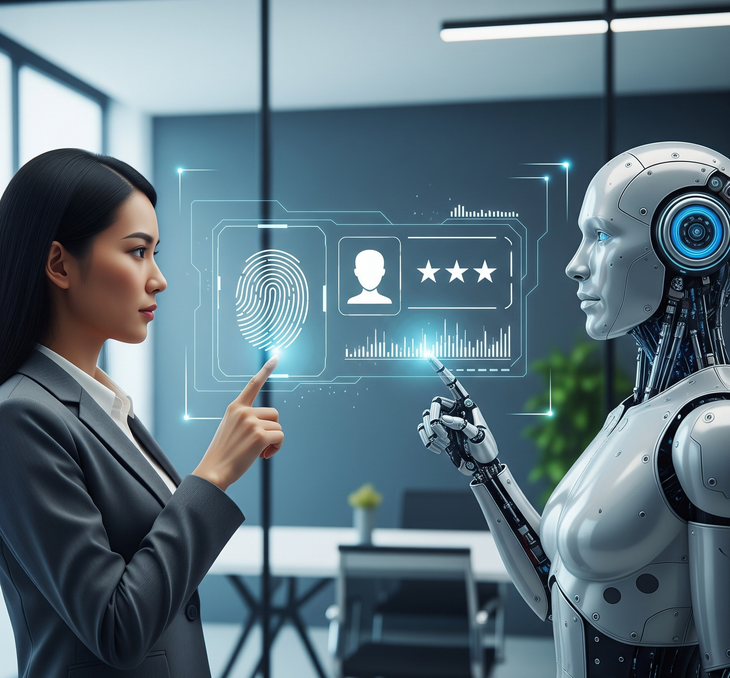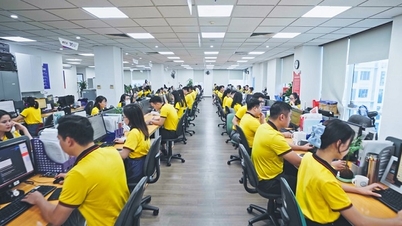
In the digital world , your identity is no longer defined by you, but by your device.
Fingerprints, faces, and voices were once the unmistakable marks of each human being. But in the eyes of machines, they are now just dry data sets: measurement points, coordinates, statistical sequences.
The biometric system on the device doesn’t store the original photo or the user’s real fingerprint. Instead, it extracts a “feature template” of parameters. Changing the angle of your face, the lighting, your hairstyle, or even just frowning can be enough to cause the device to reject you.
In the digital world, you are no longer your flesh and blood self. You are a copy of data. And if that copy deviates even slightly, you become a stranger.
Convenience comes with default suspicion
Why after powering off, updating software or running out of battery, the device won't unlock with fingerprint or face?
This is a default security rule in modern operating systems. After each reboot, the system assumes that the device may have been tampered with and temporarily disables biometric authentication.
Only classical ciphers are accepted to unlock. That's how machines maintain the principle of "zero trust" - not trusting anyone, not even their own master.
Biometrics opens up a world of convenience: just a glance or a finger can unlock your phone, make payments, and access your e-wallet. But it also comes with an ironic risk: if the machine doesn't recognize you, you'll be shut out of your own world.
From the feedback of many users, just small changes such as wearing a mask, changing hairstyle, heavy makeup or low light are enough to make the biometric camera unable to recognize the face. At that time, everything from phones to digital banks, electronic ID cards suddenly become closed doors, even though the person standing in front is the owner.
Who are you, if the machine no longer recognizes you?
The fine line between security and control
No one denies the importance of security. But when security becomes a barrier that allows people to have their identity controlled by devices, a strange loop arises: To live in the digital world, you must be authenticated; but to be authenticated, you must be "approved" by machines.
We create devices to serve us. But increasingly, those same machines decide when we are trusted and when we are doubted.
Fingerprints, faces, and codes are not really you. But without them, you are no longer recognized as you, at least not in the eyes of the phone you carry around with you.
In a world where identity is just data, “who you are” is no longer defined by you, but by your device.
And to be confirmed, you have to prove it. Not just once, but every time.
Because in the digital space, trust is never a given. It must be encoded, verified, and checked with every touch, every glance, every sequence of numbers.
Source: https://tuoitre.vn/trong-mat-thiet-bi-ban-la-van-tay-khuon-mat-mot-day-ma-so-20250625155415971.htm




![[Photo] General Secretary To Lam receives US Ambassador to Vietnam Marc Knapper](https://vphoto.vietnam.vn/thumb/1200x675/vietnam/resource/IMAGE/2025/9/29/c8fd0761aa184da7814aee57d87c49b3)
![[Photo] The 1st Congress of Phu Tho Provincial Party Committee, term 2025-2030](https://vphoto.vietnam.vn/thumb/1200x675/vietnam/resource/IMAGE/2025/9/30/1507da06216649bba8a1ce6251816820)
![[Photo] Solemn opening of the 12th Military Party Congress for the 2025-2030 term](https://vphoto.vietnam.vn/thumb/1200x675/vietnam/resource/IMAGE/2025/9/30/2cd383b3130d41a1a4b5ace0d5eb989d)
![[Photo] General Secretary To Lam, Secretary of the Central Military Commission attends the 12th Party Congress of the Army](https://vphoto.vietnam.vn/thumb/1200x675/vietnam/resource/IMAGE/2025/9/30/9b63aaa37ddb472ead84e3870a8ae825)






























![[Photo] General Secretary To Lam attends the ceremony to celebrate the 80th anniversary of the post and telecommunications sector and the 66th anniversary of the science and technology sector.](https://vphoto.vietnam.vn/thumb/1200x675/vietnam/resource/IMAGE/2025/9/29/8e86b39b8fe44121a2b14a031f4cef46)






























































Comment (0)